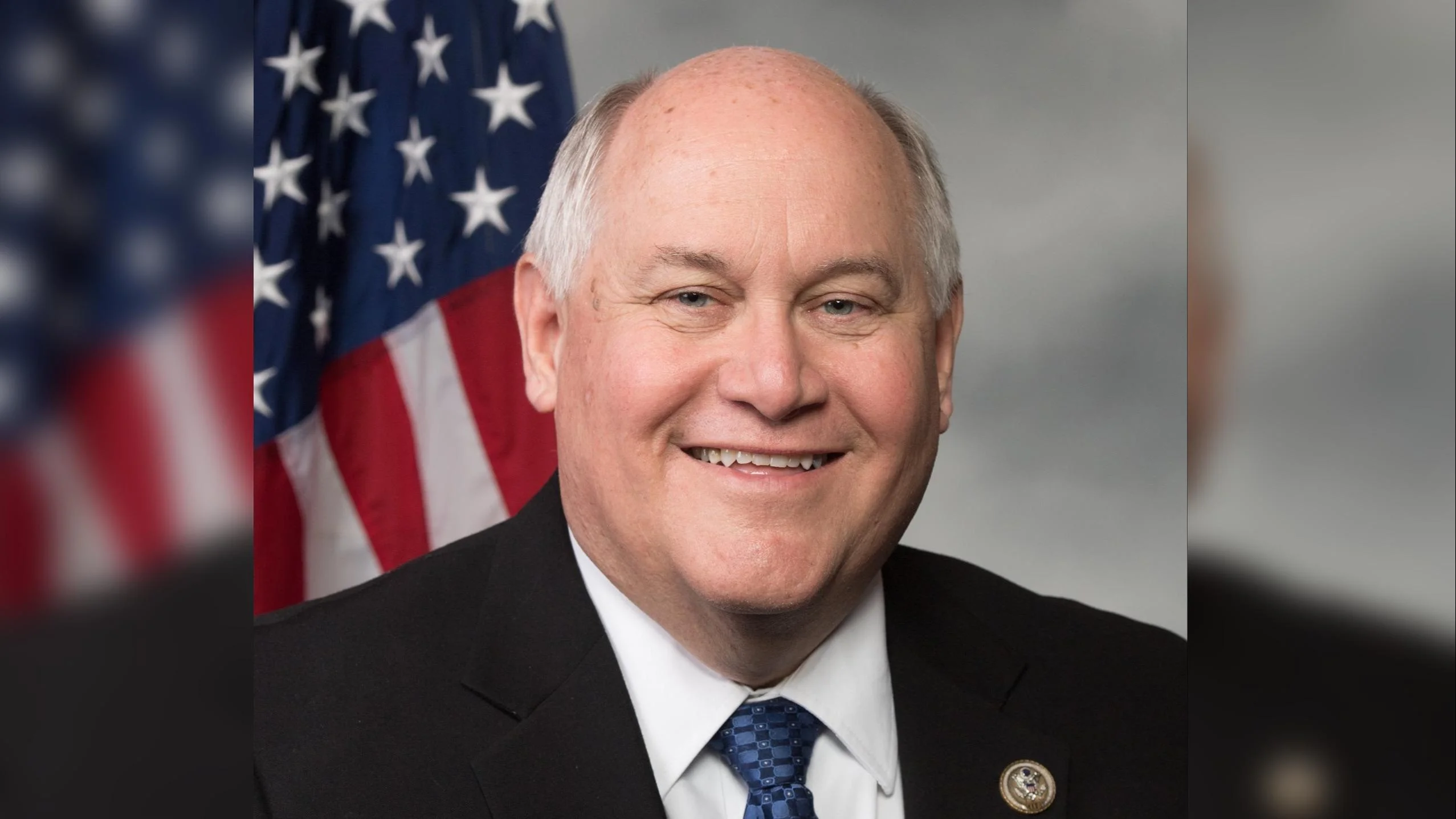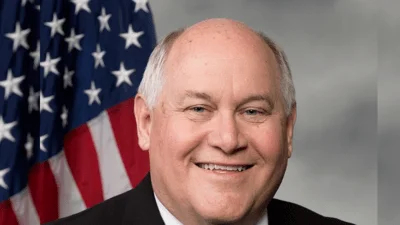U.S. Rep. Ron Estes representing Kansas' 4th Congressional District | Official U.S. House headshot
U.S. Rep. Ron Estes representing Kansas' 4th Congressional District | Official U.S. House headshot
U.S. Congressman Ron Estes (R-Kansas), a member of the Western Congressional Caucus, recently appeared on Montana Talks with Aaron Flint to discuss several legislative and policy topics relevant to his work in Congress. Estes spoke about the Caucus’s recent activities in Montana, legislative provisions in the One Big, Beautiful Bill, and the removal of the lesser prairie-chicken from the Endangered Species Act.
During his visit to Montana with other members of the Western Congressional Caucus, Estes described the landscape and geological features he observed. “It was beautiful as we went up there yesterday … It was great being able to see the heights of the mountains and the depths of the valleys as you're going up. But also, I'm kind of an engineer by background, and so just seeing the striations in the rock layer and thinking about the geological impact of how that was created. It's interesting to watch and just a beautiful scenery to see.”
Estes discussed historical challenges related to building transportation infrastructure in western states. “You think about how you maintain that and you think back about, you know, in the 1930s, when they were building the road is, how you ended up with the technology that was available at that point in time. Carrying dynamite in your backpack to get up to the places where you had to blast out rock to to be able to get to that. And then using the rock formation and making the arches for part of that section of the roadway so that they didn't have to blast too much of the mountain away in order to make that work.”
Explaining one purpose behind forming the Western Congressional Caucus, Estes said: “It's called the Western Caucus because really one of the primary goals is focusing on our public lands and how do we protect, preserve and make sure that we maintain those in an equitable manner to be able to use and be beneficial for Americans.
“There's members from all across the country. So being able to be responsible and stewards of our public lands is so important. It's great to see that as you're here, see it in person and be able to partake in and experience it.”
Estes noted Kansas’s unique position within caucus discussions due its geography: “For me, from Kansas, we're kind of midwestern plains, depends on which definition you're using, but not only looking at our responsibility taking care of public lands, but also the Western Caucus, we look at . . . property rights, and the ability for us as Americans to own whatever it is, whether it's land, whether it's a house, whether it's a vehicle.
“That's the base of being free is being able to have those property rights that you can understand and benefit from, and not have somebody at a whim because they have some political power, take that away from you. And so that's another reason why I joined the Western Caucus.
“The other reason … endangered species are one of the things that we talk about in the caucus, and in Kansas we have some things like lesser prairie-chicken and a few other things that sometimes pop up. So obviously that's a concern as well as making sure that our EPA and Department of Interior and Fish and Wildlife are actually doing the things that they should be doing.”
On tax legislation included within what he referred to as “One Big, Beautiful Bill,” Estes highlighted measures aimed at preventing significant tax increases next year following expiration of certain provisions from previous tax law changes: “From a tax standpoint, we were facing a huge tax increase next year because of the temporary nature of some of the provisions that were put into the Tax Cuts and Jobs Act in 2017. So it depends on how your numbers are, different states would be differently affected, but it basically would have been … 22% tax increase for individuals. And in Kansas, in one year, that would have amounted to about $2,200.
“. . .So obviously that has a huge impact on individuals and the way that they can run their lives whether they can buy the car or the truck that they need. We just couldn't allow that to happen.
“Other provisions that actually we put in place in 2017 that actually made the economy take off. Whether it's being able to write off capital expenditure, so a business goes out and buys something,and they can be able to deduct that first year,instead of spreadingthat out over five years.That provision expired along witha provisionthat allowed researchand development coststo be deductedthe first yearthatthey're incurred.Whatwe sawwhen thoseprovisionsexpired two years ago,wasa dropin investmentand acorrespondingdrop injobsandincomes.”
Estes also addressed efforts relatedto estate taxes: “We wantto make surethat familiescan passit on.I mean they're American citizens,whether they'rein KansasorMontana orarethe best stewardsof landandthe best stewardsof property.We wantto make surethattheycan passon totheir heirsaswell asthebenefitthatthey obtainedduringtheir lifetime.
“We wereable togetsome permanencein whatthe death taxexemptionis keepitat ahigh rate,and indexitfor inflation,sothatitcontinuesto go upas inflationcostsshowup.
“We wantto makesurethatjustthepermanenceaspectof somanythingsisgoingto helpmakealotof thosedecisionsbetterandeasierfor peopleto makeandgooutandmakethatinvestmentinthesawmillbecauseyouknowthat hey,thisisgoingtobethetaxcodeforthenextseveralyearsandit'snotafive-yearprovisionthatwehaveto lookat.”
Addressing federal spending oversight,E stes stated:“Whenyoulookat theseothergroupsand,youknow,the DOGEeffortuncoveredalotof thisintermsofjustoutrightwastefulspendingandfraudandabuseofthetaxpaydollars.We'vebeenabletocodifysomeof thosethingstohelpbackupthatexecutiveorder[fromPresidentTrump]andsomeof thosethingsthatcomethathavecomeoutoftheexecutivebranchbecauseunlessyoudon'tputitinlawwhenonepresidentialadministrationchanges,youcanhaveacompletelydifferentdirectioninthat.
“We needtomakesurethatwegetmorethingsputinlawlikewhat'stheprocessfortakingsomethingoffoftheendangeredspecieslistoncetheygetoffthatplace?What'stheprocessoflookingatthisisthelandweown,butdowereallyneedallofthat?Maybebecausetherearebetterusesforthatland.”
Ron Estes has represented Kansas’s 4th district since 2017 after succeeding Mike Pompeo [source]. He was born in Topeka in 1956 [source] and currently resides in Wichita [source]. He holds a Bachelor’s degree from Tennessee Technological University.


 Alerts Sign-up
Alerts Sign-up